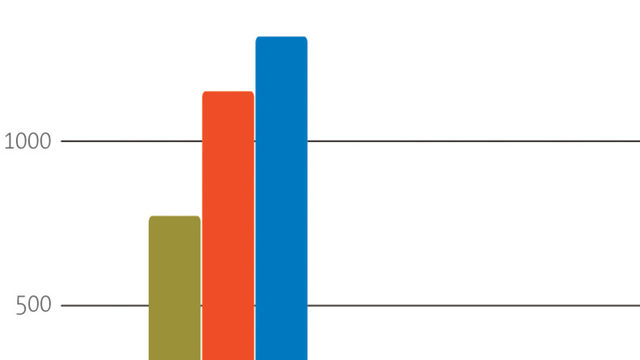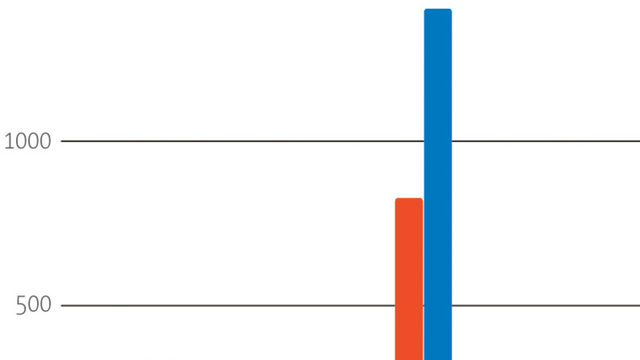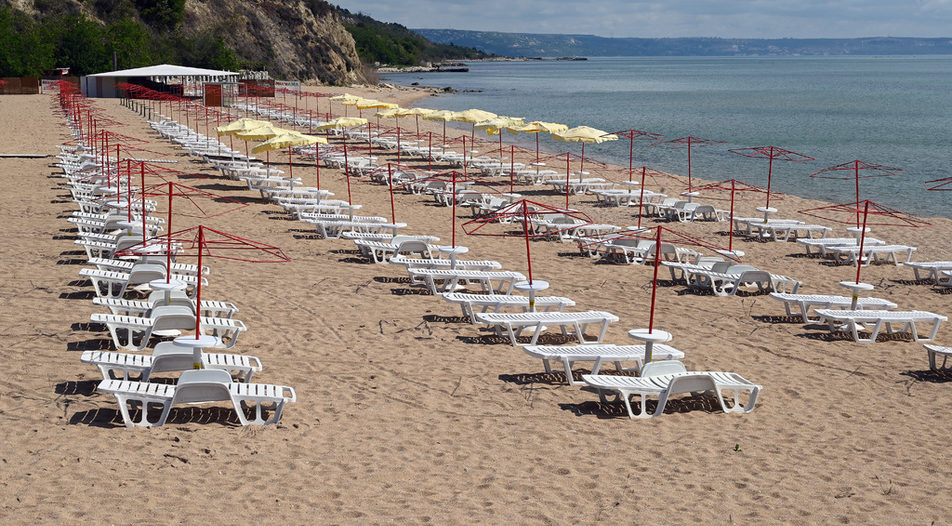| Accent |
|---|
| This year, only about 70% of all hotels of the higher category opened their doors in Golden Sands. By the end of August, most of them report a significant operating loss |
It became clear as early as March. The Bulgarian summer tourism season would be very different in 2020 compared to previous years. Yet how different exactly and for how long will this last, is still unclear.
The southern part of the country's seaside resorts enjoyed the return of Bulgarian visitors who usually prefer Greece's Aegean coast but had to turn their eyes to the smaller coastal resorts at home due to the coronavirus-related restrictions on international travel.
The increase in Bulgarian tourists was welcome for small resort towns but it is the big resorts that needed them most this summer. Golden Sands, Sunny Beach and Albena are the biggest resorts on the Bulgarian coast, catering mostly to foreigners' tastes as over 90% of their visitors used to come from abroad. This year, these expansive resorts look deserted. In Golden Sands, on the northern Bulgarian Black Sea Coast, more than a third of the establishments remained closed this summer because of the fatalistic outlook for the season, according to unofficial information from the Bulgarian Hotel and Restaurant Association.
Although the situation seems very different depending on the location, the big numbers paint a very gloomy picture. The tourism sector has no chance to earn more than a quarter of its usual summer season revenue if it relies entirely on Bulgarian tourists. Last year, tourism brought in 1.5 billion levs (750 million euro) in revenue from nights spent, 1.1 billion levs of which came from foreign tourists. This year, a total of 450,000 foreigners travelled to Bulgaria on holiday in June, July and August - a drop of about 86% compared to last year.
A shorter season
"Just hours after the German government advised against travelling to the Bulgarian regions of Varna, Dobrich and Blagoevgrad due to an increase in the number of coronavirus patients, charter airlines announced the final dates of their flights' schedule," said Ventsislav Tanchev, owner of travel agency Suntours. Germany is a factor who everyone in Europe takes into account, which meant that the warning also affected the markets in Poland and the Czech Republic - major destinations for Bulgaria's tourism sector.
Golden Sands, a major seaside resort on the northern Bulgarian Black Sea Coast located 15 km from Varna, is very dependent on foreigners - over 95% of its revenue came from international visitors last year, according to data from the National Statistical Institute. Usually, the summer season lasts 10 weeks but this year it ended within five.
"Passengers cancelled their flights only a day or two before take-off. This was the direct effect of the warning Germany issued to its citizens. From then on, even after the warning was lifted, recovering charters was no longer possible. They always start and end with one empty flight. With an extremely shortened flight schedule, the financial burden becomes too heavy for operators," Tanchev explained. According to him, the Bulgarian government support for the companies organizing charter programs was fatally delayed and thus had no effect. "The aid must cover a horizon of at least 2 years from now in order to be efficient," adds Tanchev.
In 2020, the start of the summer season was significantly delayed. Last year, June brought 38 million levs in revenue from nights spent in Golden Sands and 53 million levs to hotels in Sunny Beach, another major seaside resort on the Black Sea coast, located approximately 35 km north of Burgas. This year, June brought in about 1 million levs in revenues to each of the two resorts. The business started to recover in July when the decrease was between 70% and 80% on an annualized basis. August may also bring relatively good numbers but they will be far from last year's.
Foreign travel agencies sending tourists to Bulgaria usually pick 4- and 5-star hotels. This year, only about 70% of all hotels of the higher category opened their doors in Golden Sands. By the end of August, most of them report a significant operating loss. Ventsislav Tanchev explains that, under normal circumstances, for a hotel to cover its costs, it must fill at least 40% of its capacity. However, because of the coronavirus pandemic, many have been forced to offer last-minute deals at greatly reduced prices. Consequently, in order to cover operating expenses, hotels had to fill 50% of vacancies, which was impossible in the absence of foreign tourists.
Officially, the number of available beds in accommodations is smaller than it was last year - the decrease is between a quarter and one-fifth. The number of people who spent the night on the Bulgarian Black Sea coast in June was 85% below the year-earlier level, in July the decline was 55%. The decrease was entirely driven by the lack of foreign tourists. The number of Bulgarians spending the night on the coast grew by 19% in Varna Region (to 60,700) and by 7.8% in Burgas Region (to 146,000).
The saviours of the season
Romanian tourists - one of the few who can get to the Bulgarian seaside by car - seem to be those who justify open restaurants and shops in the northern part of the coast. However, they are faced with a major issue in the sector which is also the reason why many Bulgarians now pick other countries for their summer holidays - the poor quality of tourist services in Bulgaria.
Paul and Lila arrived by car from Bucharest. On the first day of their holiday in Golden Sands, they had to pay a fine of 100 levs after their car was lifted for alleged illegal parking on the outskirts of the resort. "There were no signs," said Paul. "I parked in a place where there were other cars, but only mine was lifted. I didn't understand the reason. When I went to look for it I almost got into a fight because I asked for an explanation. I got away unscathed, but I've heard from other Romanians that there have been fistfights because of the arrogance of the people serving the parking lots here. There is definitely something wrong," said Paul.
In previous years, Paul and Lila rented rooms in guest houses in the smaller resort towns of Shabla and Durankulak north of Varna and Golden Sands. They believe that the smaller towns are a better option compared to the big resorts and Bulgarian tourists generally agree with them.
Unlike large resorts such as Golden Sands, small towns and accommodation establishments have no problems with their usual customers. The most popular small towns are in the south. Which is why by mid-July people had to wait for a week for a table reservation in restaurants in Lozenets and Sozopol. In Varvara, guest houses demanded a 50% non-refundable payment upfront for a reservation. Unfortunately, official statistics show very little of this trend, as most of the accommodation options are either too small to get into the database (which includes places with more than 10 beds) or simply do not report to the statistical institute.
"Our hotel is a family business and has been operating since 2007, and clients are mainly families with small children," said Andrey Voynov, the manager of Asti art hotel in Sinemorets. "This year we opened on June 1. At one point we were deliberating whether to open or not, we were making calculations whether we would be able to cover our expenses. We decided it was better to open", recalls Voynov. Surprisingly, as of July 31, the hotel had almost achieved last year's revenues. They also managed to get a grant of 9,600 levs under a government scheme for micro-enterprises which also helped the family business to cover expenses.
| Accent |
|---|
| In June, July and August, a total of 450,000 foreigners travelled to Bulgaria on holiday - a drop of about 86% compared to last year |
In the north, resort towns are calmer and more secluded - in line with the current health requirements concerning the pandemic and the need for social distance. They are also not lacking guests. "We have no problems with the tourists," said Ivan Ivanov, manager of the Krapets Beach campsite. "If we have to talk about a decrease [in revenue] at all, it would be within no more than 5%. This year the tourists are divided equally - 50:50 Bulgarians and Romanians, whereas usually there is a slight prevalence of Romanians. The same can be said for the guest houses in the area," said Ivanov.
Empty streets
Undoubtedly, summer tourism is having a tough time this year but most people from the big resorts are dreading 2021 as well. "Somehow, we'll get through this year but I don't know about the next one," said Metodi, who comes every year to Golden Sands to sell "artisan" T-shirts.
"The 60/40 measure did not help us retain our employees," said Grigor Fidanov, owner of one of the most successful hotel chains in the country - Grifid. According to him, the hotel chain received only 366 levs per employee in aid from the government. "With that amount of aid I have no chance of keeping even a single decent employee because the cost of their insurance is more than that help," explains Fidanov.
In previous years, Grifid hotels were open from around April until the end of October. Thus, there are only about three months in which employees are left unemployed if the time when the hotels prepare for business and close down for the year is taken into account. This year, the situation is completely different - the hotels of the chain opened in July and will close in September.
"In this situation, people cannot stay unemployed as they did in previous years," said Fidanov. "We will irretrievably lose qualified personnel - technicians, cooks, maids. Every decent employee will find a job in one of the large retail chains with year-round employment and will never think about tourism again. The same will happen with the office staff, the call centres are waiting for them. This is what the government had to think about. Instead, they created thoughtless measures that make no sense and will reverberate for several seasons to come," believes Fidanov.
In his opinion, the government is most to blame for the dreadful season because they let the protective measures in Golden Sands fail. Not one disco, bar or club went through an inspection or was sanctioned by the authorities for non-compliance with safety and sanitary regulations even after such information was posted by German media. "Even if they were few, there were some tourists in Golden Sands at the beginning of the season. With the government completely indifferent, the bars did everything possible to make it as you see it now, at the end of the summer. A total failure," said Fidanov.


| Accent |
|---|
| This year, only about 70% of all hotels of the higher category opened their doors in Golden Sands. By the end of August, most of them report a significant operating loss |
It became clear as early as March. The Bulgarian summer tourism season would be very different in 2020 compared to previous years. Yet how different exactly and for how long will this last, is still unclear.












